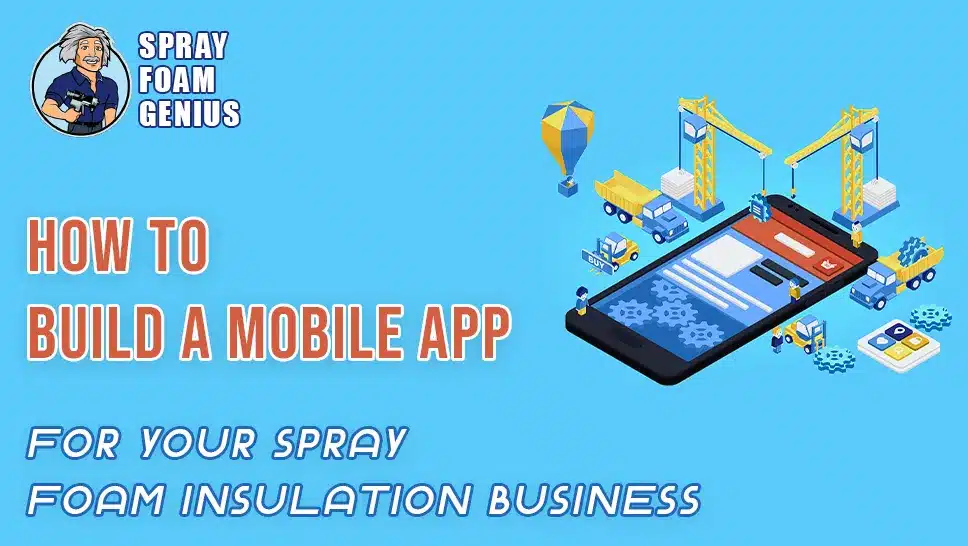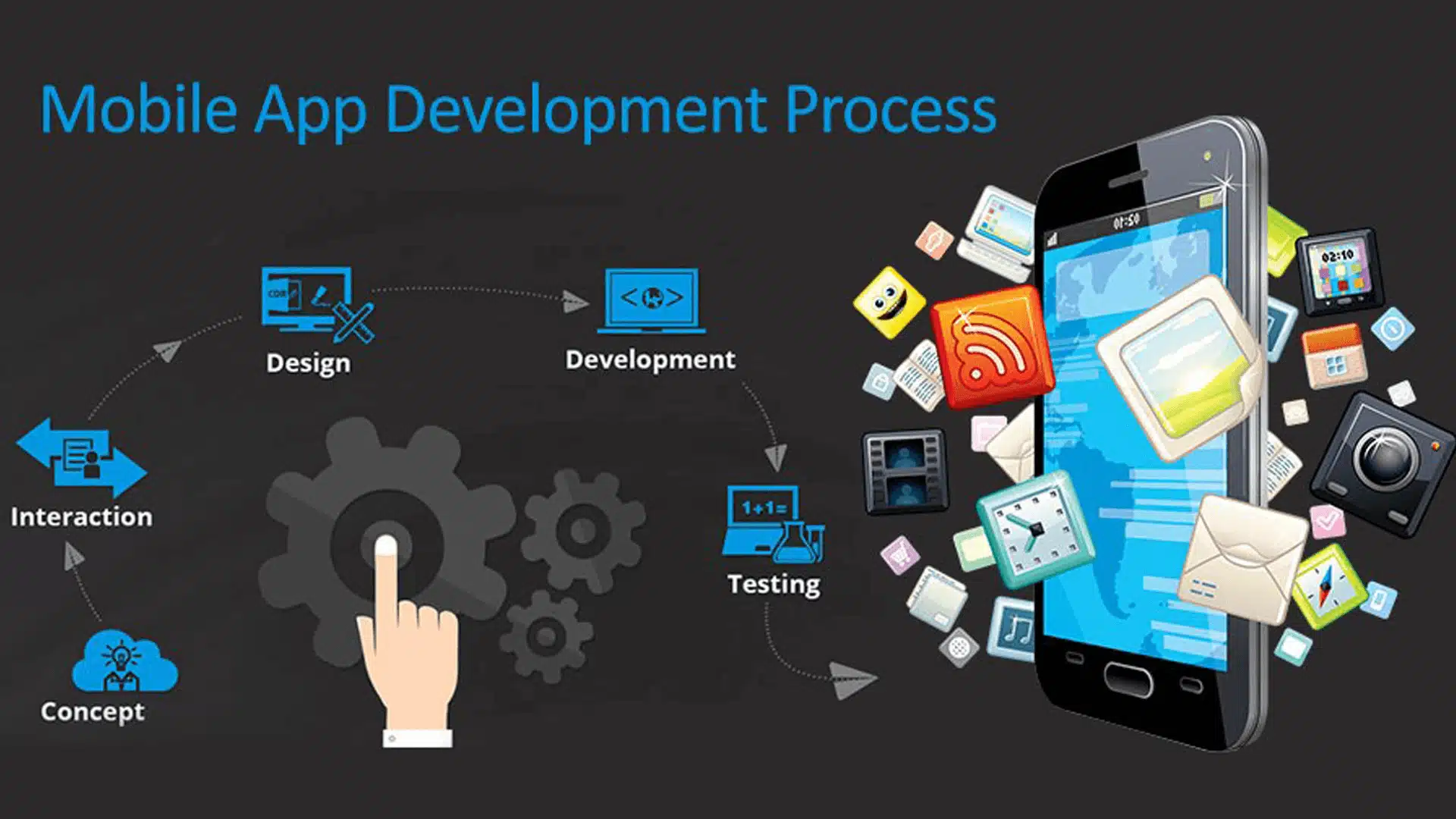
In today’s fast-paced digital landscape, mobile apps have become essential tools for businesses across various industries, including spray foam insulation. A well-designed mobile app can significantly enhance customer engagement, streamline operations, and boost your brand’s visibility. If you’re a spray foam insulation contractor in the USA or Canada, building a mobile app can set you apart from the competition and drive your business forward.
At Spray Foam Genius Marketing, we specialize in helping spray foam insulation contractors develop mobile apps tailored to their specific needs. In this blog post, we’ll guide you through the essential steps to build a mobile app for your spray foam insulation business, ensuring that your investment is both strategic and effective.
Why Your Spray Foam Insulation Business Needs a Mobile App
Enhance Customer Engagement and Convenience
Mobile apps offer a direct and convenient channel for customers to interact with your business. Whether it’s booking a consultation, viewing your services, or accessing educational content about spray foam insulation, an app puts your business right in your customers’ pockets. This level of accessibility can lead to increased customer satisfaction and loyalty.
Streamline Operations and Improve Efficiency
A mobile app can help streamline various aspects of your business operations, from managing appointments to tracking customer inquiries. By automating routine tasks and providing real-time updates, an app can free up valuable time, allowing you to focus on delivering high-quality services.
Boost Brand Visibility and Credibility
In a competitive market, having a mobile app can enhance your brand’s visibility and credibility. It positions your business as forward-thinking and customer-centric, which can be a significant differentiator when potential customers are deciding between service providers.
Planning Your Mobile App: Key Considerations
Define Your Goals and Objectives
Before diving into the development process, it’s crucial to define what you want to achieve with your mobile app. Are you looking to improve customer engagement? Streamline appointment scheduling? Provide educational content? Clearly outlining your goals will help guide the development process and ensure that the final product aligns with your business objectives.
Identify Your Target Audience
Understanding your target audience is essential for creating an app that meets their needs. For spray foam insulation contractors, this typically includes homeowners, builders, and property managers. Consider their preferences, pain points, and how they are likely to use your app. This will inform decisions on design, features, and functionality.
Choose the Right Platform: iOS, Android, or Both?
Deciding whether to build your app for iOS, Android, or both platforms depends on your target audience and budget. If your customers primarily use one platform over the other, it might make sense to focus on that platform first. However, if you want to reach the broadest audience possible, a cross-platform app that works on both iOS and Android might be the best approach.
Determine Key Features and Functionality
The success of your app will largely depend on the features and functionality it offers. Some key features to consider for your spray foam insulation business app include:
- Appointment Scheduling: Allow customers to book consultations directly through the app.
- Service Catalog: Showcase your services, complete with descriptions, pricing, and benefits.
- Push Notifications: Send updates, promotions, and reminders directly to users’ devices.
- Customer Reviews and Testimonials: Display customer feedback to build trust and credibility.
- Educational Resources: Provide articles, videos, and FAQs about spray foam insulation to educate your audience.
- Contact and Support: Make it easy for users to get in touch with you for inquiries or support.
Budgeting and Cost Considerations
Building a mobile app is a significant investment, so it’s important to establish a realistic budget. Costs can vary widely depending on the complexity of the app, the platform(s) you choose, and the development team you work with. Be sure to factor in not just development costs, but also ongoing maintenance, updates, and marketing to ensure your app remains functional and relevant.
The Mobile App Development Process

1. Research and Concept Development
The first step in building a mobile app is research and concept development. This involves gathering insights about your target audience, analyzing competitor apps, and brainstorming features that will make your app stand out. During this phase, you’ll work with a development team to create a detailed project plan that outlines the app’s goals, features, and design.
2. Design: User Interface (UI) and User Experience (UX)
The design phase is crucial for creating an intuitive and engaging app. A professional design team will focus on both the user interface (UI) and user experience (UX) to ensure that your app is visually appealing and easy to navigate. This involves creating wireframes, prototypes, and mockups that provide a visual representation of the app’s layout and functionality.
Key Design Considerations:
- Simplicity: Keep the design clean and straightforward, making it easy for users to find what they’re looking for.
- Brand Consistency: Ensure that the app’s design aligns with your brand’s colors, fonts, and overall aesthetic.
- Accessibility: Make the app accessible to users of all abilities, with features like larger text options and voice commands.
3. Development and Coding
Once the design is finalized, the development phase begins. This is where the app is coded and the features are brought to life. The development process typically involves both front-end and back-end development, ensuring that the app is not only visually appealing but also functional and reliable.
Development Considerations:
- Cross-Platform Compatibility: Ensure that the app functions seamlessly across different devices and operating systems.
- Scalability: Build the app with scalability in mind, allowing for future updates and additional features as your business grows.
- Security: Implement robust security measures to protect user data and ensure compliance with privacy regulations.
4. Testing and Quality Assurance
Before launching your app, it’s essential to conduct thorough testing to identify and fix any bugs or issues. This involves testing the app on multiple devices and operating systems to ensure that it performs well across the board. Quality assurance (QA) teams will check for functionality, usability, security, and performance, ensuring that the app meets the highest standards.
5. Launch and Marketing
Once testing is complete, it’s time to launch your app. This involves submitting it to the relevant app stores (iOS App Store and/or Google Play) and making it available for download. A successful launch also requires a well-planned marketing strategy to promote the app and encourage downloads.
Marketing Tips:
- App Store Optimization (ASO): Optimize your app’s title, description, and keywords to improve visibility in app store searches.
- Social Media Promotion: Use your social media channels to announce the app launch and highlight its key features.
- Email Marketing: Send a dedicated email to your customer base, inviting them to download the app and offering an incentive, such as a discount or free consultation.
6. Post-Launch Support and Maintenance
Launching your app is just the beginning. To ensure its long-term success, you’ll need to provide ongoing support and maintenance. This includes regularly updating the app to fix bugs, add new features, and keep up with changes in technology and user expectations.
Post-Launch Considerations:
- User Feedback: Encourage users to leave reviews and provide feedback, which can help you identify areas for improvement.
- Analytics: Use app analytics to track user behavior and engagement, providing insights that can inform future updates and marketing strategies.
- Updates: Regularly update the app to introduce new features, improve performance, and address any issues that arise.
Is a Mobile App Right for Your Spray Foam Insulation Business?
Building a mobile app is a significant investment, and it’s important to weigh the potential benefits against the costs. Here are some key questions to consider:
- Do you have a loyal customer base that would benefit from a mobile app?
- Are there specific challenges in your business that a mobile app could help solve?
- Do you have the budget and resources to support ongoing app development and maintenance?
If the answer to these questions is yes, then building a mobile app could be a valuable addition to your marketing strategy, helping you to engage customers, streamline operations, and grow your business.
Build Your Mobile App with Spray Foam Genius Marketing
A well-designed mobile app can transform your spray foam insulation business, providing a powerful tool for customer engagement, operational efficiency, and brand visibility. At Spray Foam Genius Marketing, we specialize in helping spray foam insulation contractors build custom mobile apps that meet their specific needs.Ready to take the next step? Call us at 877-840-FOAM for USA and 844-741-FOAM for Canada visit our website at sprayfoamgeniusmarketing.com, or email us at [email protected] to learn more about how we can help you build a mobile app that drives your business forward.
- 5 Google My Business Hacks to Double Your Leads for Spray Foam Insulation Contractors - January 14, 2025
- Why Spray Foam Contractors Cannot Ignore Reputation Management in 2025 - January 13, 2025
- Local SEO Secrets Every Spray Foam Contractor Must Know to Win in 2025 - January 13, 2025

